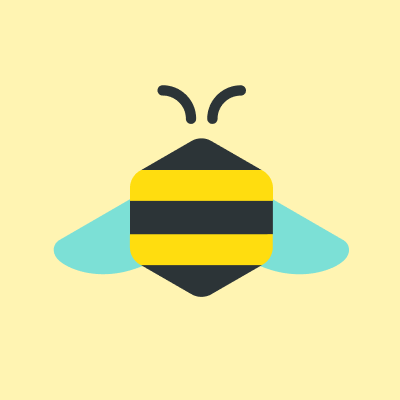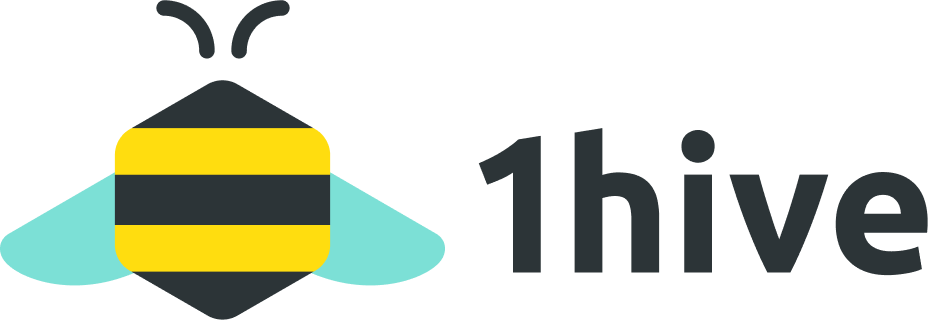TL;DR:
Gardens: community currencies with a voice.
- Economic alignment via token collateralization.
- Anyone can permissionlessly enter and exit the org.
- Signal preferences instead of making hard decisions.
Motivation
Gardens aim to support bottom-up grass roots coordination in decentralized networks. Anyone can come and go as they please. Members of the network can signal their preferences continuously.
Gardens is a social, financial, and technical foundation for online communities to organize. This empowers people to coordinate around causes, social movements, or even memes. Gardens are designed to be operationally decentralized and autonomous from day one. Based on our interpretation of the “Hinman Test” Gardens allow people to take advantage of tokenization while minimizing the risk of being designated as a security. Anyone can summon a Garden. The Garden summoner, however, does not have any special rights or authority within that community.
Gardens are composable! You can have a main Garden as the core of an ecosystem, but then also spin up derivative Gardens that use the tokens of the main DAO as the collateral/currency for the derivative DAOs. This creates an ecosystem of Gardens orgs that are connected to the main org (giving participants a stake in the ecosystem), but also allow each Garden to focus on it’s own goals and use cases.
Mechanisms
Marketplace
Like a Uniswap instance, but the liquidity fees go directly to the DAO for members to use towards achieving the DAO’s goals. Tokens are issued (minted and burned) continuously via a bonding curve.
Issuance
The Issuance app allows you to issue new tokens to an address (often the DAO’s Agent) based on a continuous issuance policy. This allows to create Bitcoin style inflation models to support the community. If tokens are minted to the DAO’s Agent then DAO members can vote to allocate tokens towards community initiatives. If tokens are minted to another sort of distribution mechanism (say a liquidity mining contract) then that can reward contributors and give them a stake in the DAO.
Note: it is recommended to use the Marketplace or Issuance app, but not both. Having two continuous issuance policies can easily lead to unintuitive results, potentially even recursive feedback loops.
Redemptions
By putting the DAO’s assets in a redemption pool tokens holders have a claim on the DAO’s operating assets. If the DAO does something token holders don’t agree with they can redeem against either the redemptions pool or the market. It is assumed they will redeem against whichever is larger.
Conviction voting
TL;DR:
- Token holders just need to show up and support things they care about.
- Token holders need to choose how to allocate voting weight between proposals and conviction “vests” or “activates” over time.
- This reduces the negotiation required for funding decisions because you just need sufficient conviction depending on how much funding is requested.
Conviction voting is the heart of the Garden. It allows people to signal their preferences continuously rather than needing to “make a decision.” This is great because the end user UX is simplified to just showing up and supporting things you care about.
The amount of support a proposal needs is relative to it’s budget. Larger proposals need more support and smaller ones don’t. The majority doesn’t need to achieve consensus on everything. As a result, everyone has a voice. You can propose and support things you care about without fear that a whale will vote you down. In fact, there is no down voting. People with large stakes and strong opinions can’t suppress the community. Proposals simply need enough support to pass. All token holders have to think about is whether or not they support something. That’s it.
It is expected that many divergent initiatives will be proposed and run in parallel. This allows the DAO to explore, experiment, and innovate. Then if an experiment works a larger proposal can be submitted for the majority of token holders to approve. This allows Gardens to grow as headless brands. They can iterate through cycles of divergence and convergence as they evolve. This allows the Garden to be a living organization that continuously reflects the preferences and interests of token holders.
Dandelion voting
Used for administrative DAO actions. It is expected that these could and should be minimal. If a DAO takes an action that token holders don’t like they can exit via a rage-quit like mechanism. If a token holder votes yes, however, they are barred from exiting in both the redemptions and marketplace until the proposal passes.
Examples
Gardens template
Here’s a Gardens DAO deployed to Rinkeby. You’ll need HONEY to acquire OGT (org tokens) to explore the marketplace, conviction voting, and redemptions. Here’s a Rinkeby DAO that lets you mint HONEY.
This template includes all of the mechanisms included in Gardens, however, in the wild we’re more likely to see variations on the theme. For example, both 1Hive and KarmaDAO use a variation of Gardens where the marketplace is swapped for a continuous issuance app. This is still within the Gardens family of design patterns, but modified to suit the use cases of each DAO.
1Hive
1Hive is the first Gardens DAO live in the wild. It’s deployed on xDAI and you can buy HONEY here. HONEY can be used to signal preferences for 1Hive proposals. To create proposals go to the 1Hive forum and post your idea. Then you can create a proposal for it via the 1Hive proposal dashboard by clicking New proposal.
Note: to create a proposal you need to be logged in, and to be logged in you need to switch your RPC network to https://dai.poa.network.
As a new design paradigm for DAOs experimentation and iteration will be required to optimize the model and establish best practices. To test this out 1Hive is running many experiments that allow for divergent viewpoints and directions to be voiced and explored within the organization. For example, 1Hive has both Keybase and Discord chats. People can signal which they prefer, and which is the most legitimate, without requiring a single source of truth. This is especially important in the context of Web3 systems like DAOs owning/using Web2 platforms. The 1Hive DAO doesn’t own things like 1hive.org, the 1Hive Keybase chat, or even the 1Hive GitHub org. many different sites/groups could emerge, and as long as they’re engaging with the DAO they can engage and contribute.
Karma
KarmaDAO is a Gardens DAO that issues tokens used to recognize awesome people doing awesome things.
- New $KARMA is continuously issued and distributed creating a persistent flow of $KARMA.
- $KARMA holders influence that flow, directing it towards people doing awesome things.
- Recipients of $KARMA can either pay it forward by holding (getting diluted), or sell out (realizing gains).
More gardens
- Gardens Notion notes
 1Hive Discord
1Hive Discord 🌻gardenschat-
 1Hive Keybase chat
1Hive Keybase chat #gardenschannel


